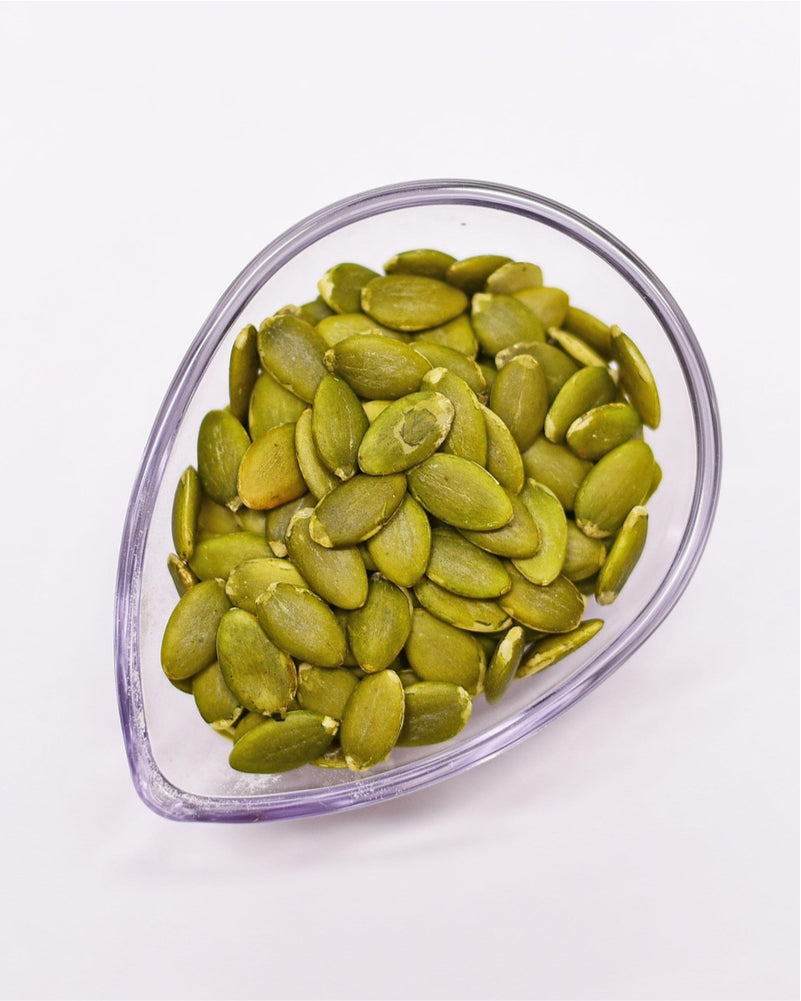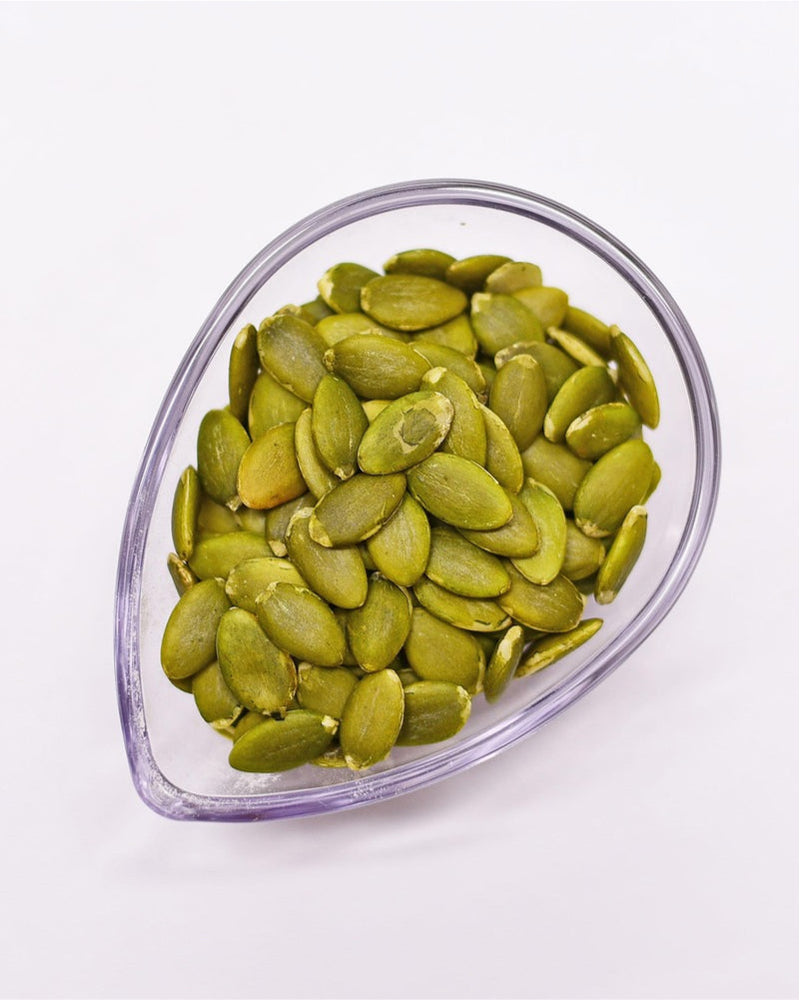Here at Free Soul we’re big on hormones. With all of our products specifically designed to support the female body, many of our ingredients are chosen with their hormone balancing properties in mind. Aside from our products, there are also small lifestyle tweaks, hacks and trends with promising results to support you on your hormone balancing journey.
Seed Cycling has been around for a number of years, with many hailing it for its benefits including helping to regulate your period and balance your hormones throughout your cycle. But what does it involve? How do you begin to try it? And most importantly, does it actually work? We’re breaking it down…
The 4 types of seed
In a nutshell (pun intended), seed cycling involves adding four different types of seeds to your diet depending on which phase of the menstrual cycle you are in.
These are pumpkin, flax, sesame and sunflower seeds. All of which contain a whole host of vitamins, minerals and essential fatty acids that support ovarian hormone production, in particular oestrogen and progesterone, and in turn help your body to stabilise the all important sex hormones and improve overall menstrual health.
How does seed cycling work?
Seed cycling is divided into two key stages: the follicular phase and the luteal phase. Seed cycling can enhance the oestrogen levels during the follicular phase, and progesterone levels during the luteal phase.
In a typical 28-day cycle, the follicular phase occurs from day 1 to 14, coinciding with the time of pollination, when the plant is producing oestrogen. It's suggested to supplement the plant's nutrition with flaxseed and pumpkin seeds (about a tablespoon daily).
These seeds are high in phytoestrogens, which is a milder, naturally-occurring form of oestrogen.
The luteal phase covers days 15 to 28, and during this phase, the plant's progesterone levels rise until the next cycle begins.
When is seed cycling useful?
With some nutritionists suggesting that seed cycling works particularly well for irregular or non-existent periods, a short luteal phase, anovulatory cycles and heavy or painful periods, it’s also thought to help with issues including fertility, subsiding pain from female-specific conditions such as PCOS and endometriosis and those who are are coming off hormonal birth control, or are pre-menopausal.
Sound like something you could benefit from? Here’s how to get started…
Day 1 - Day 14
Add a tablespoon of pumpkin and ground flax seed to your diet in the first half of your cycle, also known as the follicular phase. Flax seeds are a source of phytoestrogens, which to help naturally balance our levels of oestrogen, the hormone needed to help build our uterus lining at this point in our cycle.
Pumpkin seeds are high in zinc, this helps to prepare your body for the secretion of progesterone which happens in the next phase.
Day 15 - Day 28
Your body is moving on to the luteal stage, now is the time to switch to a tablespoon of sesame seeds, which help to support our body’s progesterone levels and regulate oestrogen levels, and a tablespoon of sunflower seeds, high in selenium which will help to support our liver breakdown oestrogen more effectively.
From topping salads, mixing into smoothies, and adding to your daily essentials like homemade granola or avo on toast, there are simple, delicious and effective ways to incorporate seed cycling into your diet.
Why choose seed cycling?
In an ideal world, a woman's body would naturally maintain a balanced level of oestrogen and progesterone throughout her cycle. But let's face it, we're living in a world filled with stress, environmental pollution, questionable food additives, digestive problems and food allergies, all of which can throw this balance out of whack.
That's where seed cycling steps in as a fantastic tool to help restore hormonal balance. The beauty of seed cycling is that it's simple to incorporate into your everyday diet and it's gentle on your system.
Is seed cycling for me?
Seed cycling might be a good fit for you if you're dealing with signs of low oestrogen or an overload of oestrogen. Overload, or oestrogen dominance, can happen when your body isn't great at getting rid of excess oestrogen, leading to an accumulation of a not-so-good form of this hormone.
Seed cycling can help redirect this process and lessen the build-up of this less beneficial form of oestrogen.
Also, oestrogen dominance can happen if your progesterone levels are too low to balance out the oestrogen.
This hormone imbalance could show up as premenstrual syndrome (like bloating, mood changes, headaches, and cravings for sweets), irregular or heavy periods, low sex drive, trouble sleeping, hair loss, cysts in your breasts or ovaries, endometriosis, fibroids, problems getting pregnant, and polycystic ovary syndrome.
So, if any of these symptoms sound familiar, seed cycling might be worth considering.
Frequently asked questions
How long does it take to see results from seed cycling?
Results from seed cycling can vary from person to person as it largely depends on the individual's body and hormonal imbalances.
However, on average, it might take about three menstrual cycles, or roughly three months, for noticeable changes to occur.
Please remember that seed cycling is a natural process and thus may take some time to yield results.
Is seed cycling safe?
Generally, seed cycling is considered perfectly safe for most women. It involves the consumption of natural seeds, which are packed with essential nutrients.
However, it's always recommended to consult a healthcare provider before starting new dietary practices, especially for individuals with allergies, digestive issues, or other medical conditions.
Also, while seed cycling can assist with hormonal balance, it shouldn't replace medical treatments for serious hormonal conditions.

